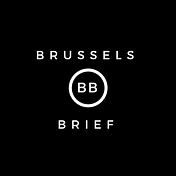The Talking Heads Edition
2 May 2019
1. Story of the Week
What happened?
While most were occupied with watching the most awaited battle in television history, another historical battle for the EU-27(8) Kingdoms went down in Maastricht. In front of a live audience of 700 people and streamed for all to follow, five candidates for Commission President laid out their case at the Theater aan het Vrijthof in Maastricht for what they will do if voters bless them with enough support to win the Commission presidency. Notable was the absence of Manfred Weber from the European People’s Party (EPP) who is the bookies favourite above all those on stage to claim the Iron Throne of the Berlaymont. Weber had declined the invitation, extended over a year ago according to moderator Ryan Heath, to attend the birthday celebrations of a political mentor instead.
Why it matters
There is less than one month to the European Parliament elections 23–26 May. This was the first time the five candidates on stage presented their visions for the European Union they want to build over the next five years: from a far-left anti-capitalist Europe to a European Green New Deal or just an EU that does less it provided a refreshing change from the grey tones of everyday European politics. Far from galvanizing the same levels of enthusiasm and viewership seen in national elections, these debates nonetheless show a remarkable shift in European politics as voters get a chance to choose which direction they want the EU to take.
The takeaway
The debate provided a few memorable moments such as when all candidates pledged to have a gender-equal Commission. Yet, the viewership fell flat with the debate gathering less than 210.000 views on YouTube, far from reaching even a reasonable share of a potential 500 million Europeans who will be directly impacted by the EP elections showing how far European democracy still has to go before it becomes mainstream. Even Twitter didn’t care much for the debate. With or without Weber, the next debates probably won’t break any records not least because the Spitzenkandidat system of choosing the Commission President, in which the President is chosen by the European Parliament, has not yet been solidified.
2. Tweets of the Week
3. Numbers of the Week
The number of pages of a report issued on Tuesday by the European Commission. In it the outgoing President of the European Commission, Jean Claude Juncker, reflects on the past five years on his Commission and in “a rather humble or modest” way suggests proposes what should happen in the next five years after the European elections. Modest for some, hubris for others, the report will be delivered at a special European Council summit in Sibiu, Romania on the 9 May which will specifically address the future of the EU27.
The 13 UK candidates to watch in the upcoming EU elections according to Politico. A mix of current MEPs, sisters of Tory Brexiteers, and rabble-rousers are the choice of candidates from a plethora of parties participating. There are a few returning champions (and losers) such as the Brexit obsessed Conservatives, flipflopping Labour and the ever more racist UKIP. New kids on the block include Nigel Farage’s vanity project, the Brexit Party and an uninspiring Change UK. Then there’s the Greens’ candidate Magic Magid…
The voter turnout in Spain’s general election held on Sunday. Hailed as a ‘victory for Europe’, the Socialist party of incumbent Prime minister Pedro Sanchez won the most seats in a Spanish general election that saw an increase in support in the left, the irruption of the far-right all to the detriment of the centre-right. The challenge now is whether Sanchez can form a government in coalition with far left Podemos (and others) or the centrist Ciudadanos party in order to bring some stability to a country which has had three general elections in the past four years.
A Message From Our Partners
The EFF — European Future Forum held its first general assembly at the European Parliament in Brussels, bringing together a large variety of NGOs and civil society organisations to share their projects with each other, workshop new initiatives and improve their communication skills and methodologies.
The EFF is the first European Communication and Project Development Network. It is open to any organisation and individual. For more information, visit their website.
4. Quotes of the Week
“We should understand Brexit not as a rejection of Europe, but as a rejection of its political class.”
The words of Canadian actress and model Pamela Anderson. The 51-year-old star previously known for her explosive role in Baywatch, is now exploding onto the European political scene as an activist for Yanis Varoufakis’ DiEM25 movement and standing up for progressive policies such as a Green New Deal, open borders and a rejection of populism in all its forms (except for Baywatch, which can be seen as positive populism?)
“In private, I’ve been calling Orbán a dictator for years. He’s always laughed about it.
The words of Jean Claude Juncker on the Hungarian Prime Minister Viktor Orban and the now infamous encounter in Riga between the two men in 2015. The comments were made as the EU commemorated the 15th anniversary of the so-called ‘big bang’ of EU enlargement where Hungary, Poland, the Czech Republic, Slovakia, Slovenia, Lithuania, Latvia, Estonia, Malta, and Cyprus all joined on 1 May 2004 and all, some argue, now hold significant sway in the how the bloc runs its affairs.
“Europe could be a shield against corporate power”
The conclusion of a report by Nina Katzemich for the NGO LobbyControl. The report (in German), denounces that the EU is doing little to curb the level of corporate lobbying arguing that rules are lax in the interplay between corporations, special interests and civil servants who often use informal channels to exert their influence. Remember that as far as influence goes, there is no such thing as a free lunch and “tout verite est negociable” as the Brussels maxim goes.





